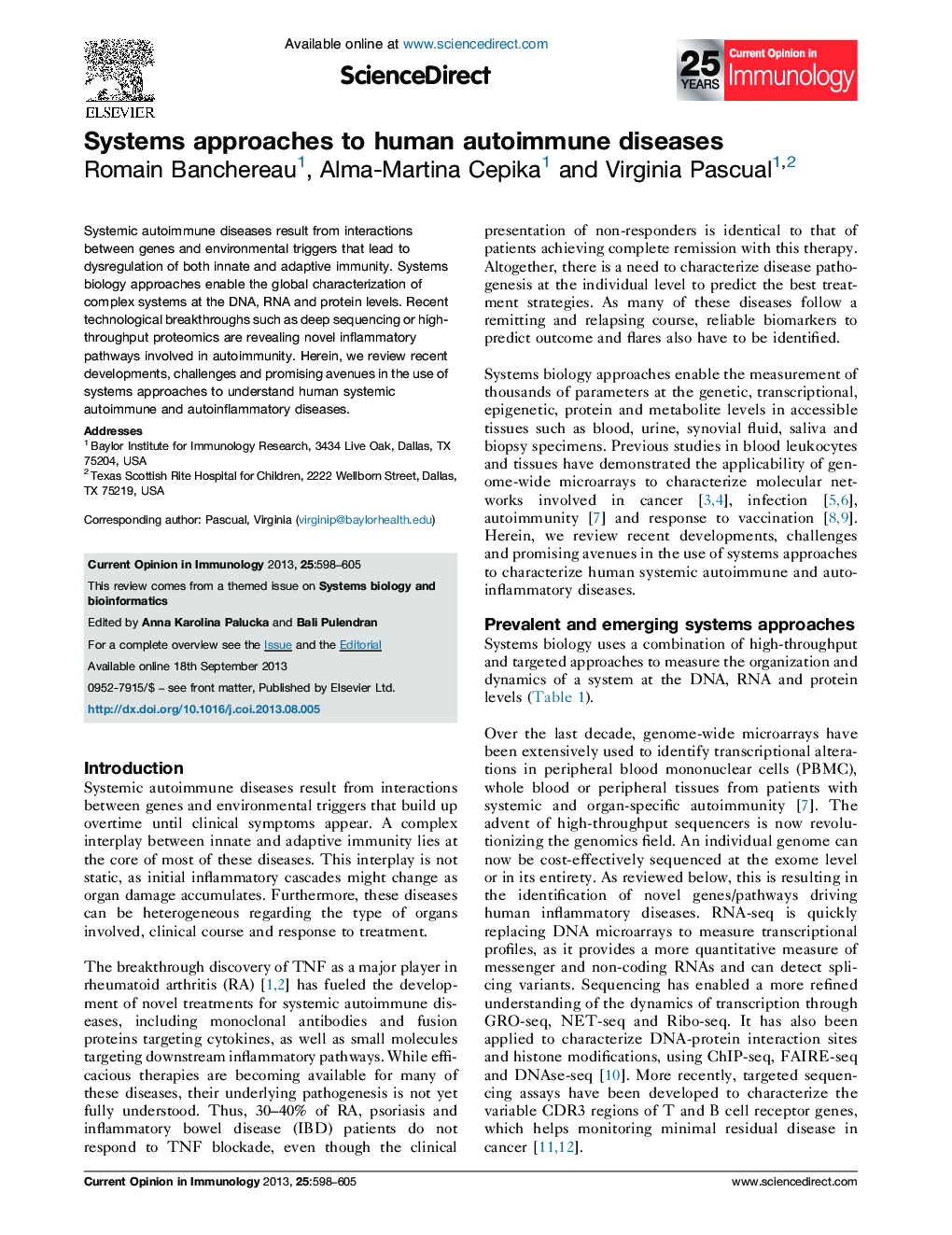| Article ID | Journal | Published Year | Pages | File Type |
|---|---|---|---|---|
| 3345828 | Current Opinion in Immunology | 2013 | 8 Pages |
•Systems biology generates functionally testable hypothesis in vitro and in animal models.•GWAS have identified many alleles associated with systemic autoimmune diseases, but HLA variants remain at the top of the list for all of them.•Exome sequencing has successfully been applied to the study of monogenic inflammatory and autoimmune disorders.•RNA-sequencing technologies are bringing gene expression profiling in autoimmune diseases to a new level.
Systemic autoimmune diseases result from interactions between genes and environmental triggers that lead to dysregulation of both innate and adaptive immunity. Systems biology approaches enable the global characterization of complex systems at the DNA, RNA and protein levels. Recent technological breakthroughs such as deep sequencing or high-throughput proteomics are revealing novel inflammatory pathways involved in autoimmunity. Herein, we review recent developments, challenges and promising avenues in the use of systems approaches to understand human systemic autoimmune and autoinflammatory diseases.
